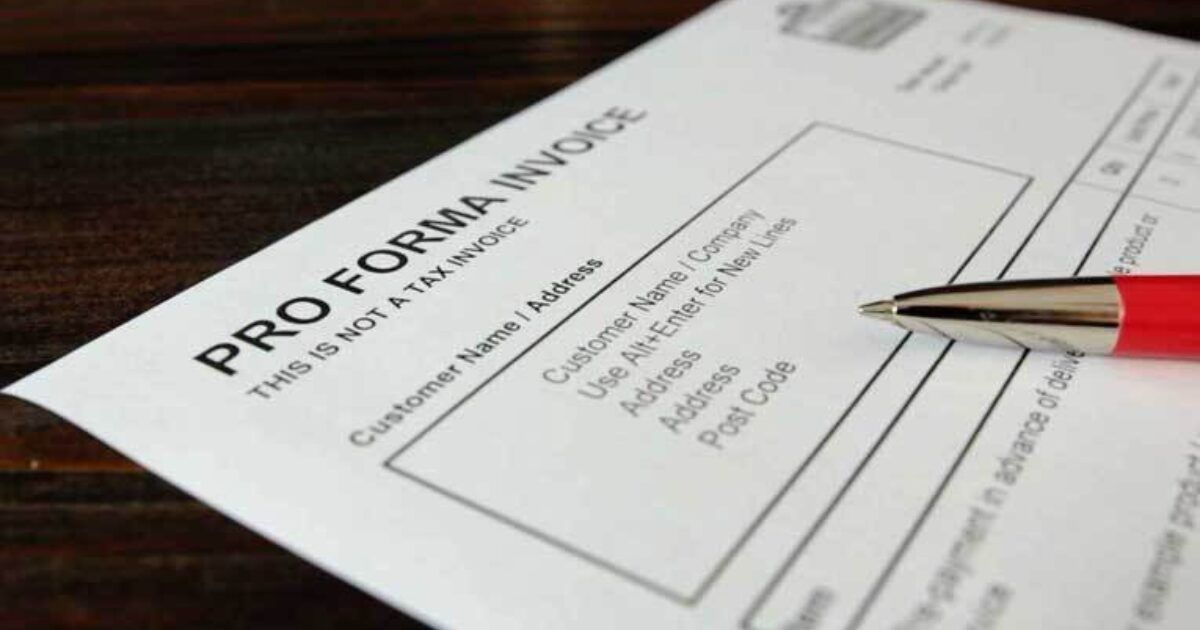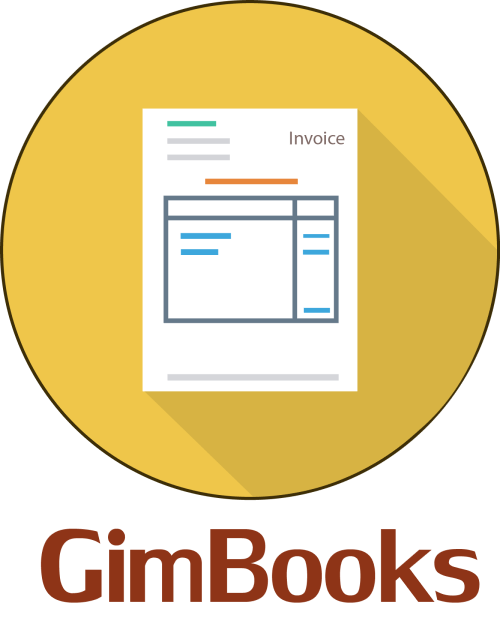Proforma Invoice: How, Why & When To Use It?


Did you know that a "Proforma Invoice" isn't the same as a real invoice? This paperwork is delivered to the buyer in various situations, most commonly before the sale is finalized.
If these queries about Proforma Invoice are plaguing your thoughts, stay with us until the end of this post — we'll clear up all your queries!
What Is A Proforma Invoice?
A proforma invoice is a drought or anticipated invoice used to solicit payment from a committed buyer for goods or services before they are delivered. A proforma online contains information such as a description of the items, the total amount due, and other transnational details.
It's essentially a "good faith" agreement between you (the seller) and the buyer so that the buyer understands what to expect ahead of time.
A proforma online can be used to offer the terms of a prospective transaction, for example, if payment in advance is necessary to guarantee finance is secured before you make items or provide a service.
Meaning Of A Proforma Invoice
“Proforma” is a Latin term that means “as a matter of form” or “for the sake of form”. A pro forma invoice is a document that lists the details of products or services that have not yet been delivered to the buyer or client.
It provides a pricing estimate for the things or services that are being offered. It also includes an estimate of any commissions, applicable taxes, the shipment's weight, and shipping charges, among other things. A supplier/retailer sends a pro forma invoice to a concerned buyer/customer.
When to use a Proforma Invoice?
Before the sale, a pro forma invoice is created. A supplier may produce a pro forma invoice if a customer requests a document for goods or services that have not yet been delivered. As a result, it's common for it to arrive before the tax/commercial invoice.
The final invoice amount will be the same as or equal to the amount of the pro forma invoice. Pro forma invoices are more commonly used for customs purposes on imports and exports to ensure that the delivery process runs smoothly.
What Is In A Proforma Invoice?
Contact information, an issue date, a description of the products or services are given, the total amount payable, and any VAT should all be included on proforma invoices. They could also include payment terms, such as which payment methods you accept and when you anticipate payment.
Contents Of Proforma Invoice
The majority of pro forma invoices give the buyer a specific sale price. It also includes a ballpark figure for commissions or fees, such as taxes or shipping costs. While the pro forma invoice is subject to change, it serves as a good faith estimate to safeguard the buyer from unexpected and large costs after the transaction has been completed.
A pro forma invoice should include the following essential things:
- Unique invoice number
- Date of preparation/issue
- Address of the supplier
- Address of the prospective buyer
- Description of goods or services, including unit pricing and totals for each line item
- Validity of the proforma invoice
- Proposed terms of sale
- Proposed terms of payment, if any
- Certifications required by “Customs Authorities” if any
- Signature of an authorised representative of the supplier's firm
Format Of A Proforma Invoice
A proforma invoice format is not required by law but is provided as a standard business practice. A pro forma invoice may resemble a business invoice but should be clearly labelled "pro forma" and may additionally state, "This is not a GST invoice." The pro forma invoice is just an estimate and should not be paid until the job is finished and the final tax invoice is sent.
However, the proforma invoice can include the following things.
- Name, logo, tax identification number, and address of the seller.
- Name, address, tax identification number, and contact information for the buyer.
- It is not necessary or relevant to mention invoice numbers.
- Proforma invoice date and proforma expiration date, which is commonly 30 to 60 days.
- Make a list of each item sold in that order, including its description, quantity, and price.
- The amount and rate of any applicable taxes, such as GST or customs duties.
- The total amount due from the buyer on the invoice.
- If necessary, provide payment information.
Purpose Of Issuing A Proforma Invoice
The purpose of issuing a proforma invoice is stated below:
- Estimating the sale price of things that have not yet been delivered or services that have not yet been rendered (estimated total cost).
- To provide the customer with information on the contents to be transported, the value of the goods, delivery times, and so on.
- To represent the supplier's promise to the buyer that the goods or services listed will be delivered at the agreed-upon price.
- When two businesses are doing business for the first time, pro forma invoices are also helpful.
Benefits Of A Proforma Invoice
The key benefit of a proforma invoice is that it is not a finalized sales invoice; therefore, it does not need to be revised if the items or services you deliver change.
1. When products are at risk of being damaged while in transit
If your customer's things are damaged when they arrive, you'll usually have to send them against the original invoice. You can make any necessary revisions to a proforma invoice before converting it into a full sales invoice.
2. When customers may change their order
When a customer cancels an order after it has been delivered, your invoice will be erroneous, and you will need to re-raise it. The key benefit of a proforma invoice is that it is not a finalized sales invoice, so there is no need to amend it if the goods or services you deliver change.
3. When things are at risk of being damaged during shipping
If your customer receives damaged goods, you'll usually have to send them against the original invoice. You can make any necessary changes to a proforma invoice before converting it into a full sales invoice.
4. When customers may change their order
If a customer cancels an order after it has been delivered, your invoice will be inaccurate and need to be raised again. A proforma invoice can be reconstructed and transformed into a complete invoice.
Why Are Proforma Invoices Used?
In foreign transactions, pro forma invoices are frequently used, particularly for customs purposes on imports. Pro forma invoices are used by businesses in almost every industry to satisfy their internal purchase approval process.
Because all terms have been agreed to in advance, pro forma invoices expedite the sales process by eliminating additional back-and-forth after completion.
When Are Proforma Invoices Sent?
Before shipping any agreed-upon deliverables or alongside the supplied things, a company may provide a pro forma invoice. It is not an official demand for payment, even though it contains accurate cost figures linked with the sale.
A pro forma invoice has no specific presentation or format, and it may or may not resemble other business bills.
The Difference Between Proforma Invoice And Commercial Invoice?
A pro forma invoice only needs enough information for customs to calculate the applicable duties based on a general assessment of the products contained. If a corporation utilises a pro forma invoice for customs, a commercial invoice must be presented within 120 days.
On the other hand, a standard business invoice must include important details such as the buyer and seller, a description of the goods, the quantity, the total worth of all shipping items, and the purchase location.
How To Make A Proforma Invoice?
Normally, while preparing a proforma invoice, you would provide the following information:
- Issue date of a proforma invoice
- Contact information for both the buyer and the seller, such as firm name, company number, address, VAT ID (if applicable), and address
- Shipping cost
- Product description of the items being sold
- Tax rates
- Net and gross prices of the items listed on the proforma invoice
- Total amount due
- Any applicable discounts
Conclusion-
Understanding Proforma Invoice: How, Why & When To Use It, can significantly enhance your business operations, especially when dealing with international clients and complex transactions and understanding the proforma invoice's application can be the difference between closing a deal successfully and encountering avoidable disputes.
Make proforma invoices a part of your standard business toolkit and experience the benefits of clearer transactions and stronger customer relationships.
Frequently Asked Questions About Proforma Invoices-
Here are some of the frequently asked questions about Proforma Invoice-
1. Is a Proforma Invoice a real invoice?
A pro forma invoice is simply a preliminary bill of sale, sometimes known as an estimate or quote. It expresses a seller's intention to provide products or services to customers for a certain price. It isn't a legitimate invoice because the price hasn't been agreed upon yet.
2. What are the reasons behind amending the details of the proforma invoice?
There could be various reasons for changing the proforma invoice's details. The following are a few of them:
- The pricing may be too high for the buyer seeking a discount.
- Based on local demand, the buyer may adjust the order quantity.
- In some cases, the buyer may request a faster shipment date since the supplier's delivery timetable is undesirable.
- If the buyer requests an urgent delivery, the mode of conveyance will be changed. One can, for example, alter the mode of transportation from sea to air.
3. What are the methods to revise proforma invoices?
The seller can increase the price or change the terms of the pro forma invoice that was previously issued. As a result, if the contents of a pro forma invoice change, the invoice number of the pro forma invoice should be amended to stay on track.
4. Can a proforma invoice be accounted for in the book of account?
A Proforma invoice is a bill of sale issued to the customer before the work is finished. You or the client cannot utilise the proforma for accounting purposes because it is not an invoice.
5. What is the validity period of a proforma invoice?
A Proforma invoice's validity varies from company to company and industry to industry. The pro forma invoice specifies the validity period.
6. Which are the major industries where a proforma invoice is used?
Pro forma invoices are frequently used by businesses across all industries to fulfil their internal purchasing approval procedure. Manufacturing, import/export, trading, wholesalers, and dealers are only a few examples.
